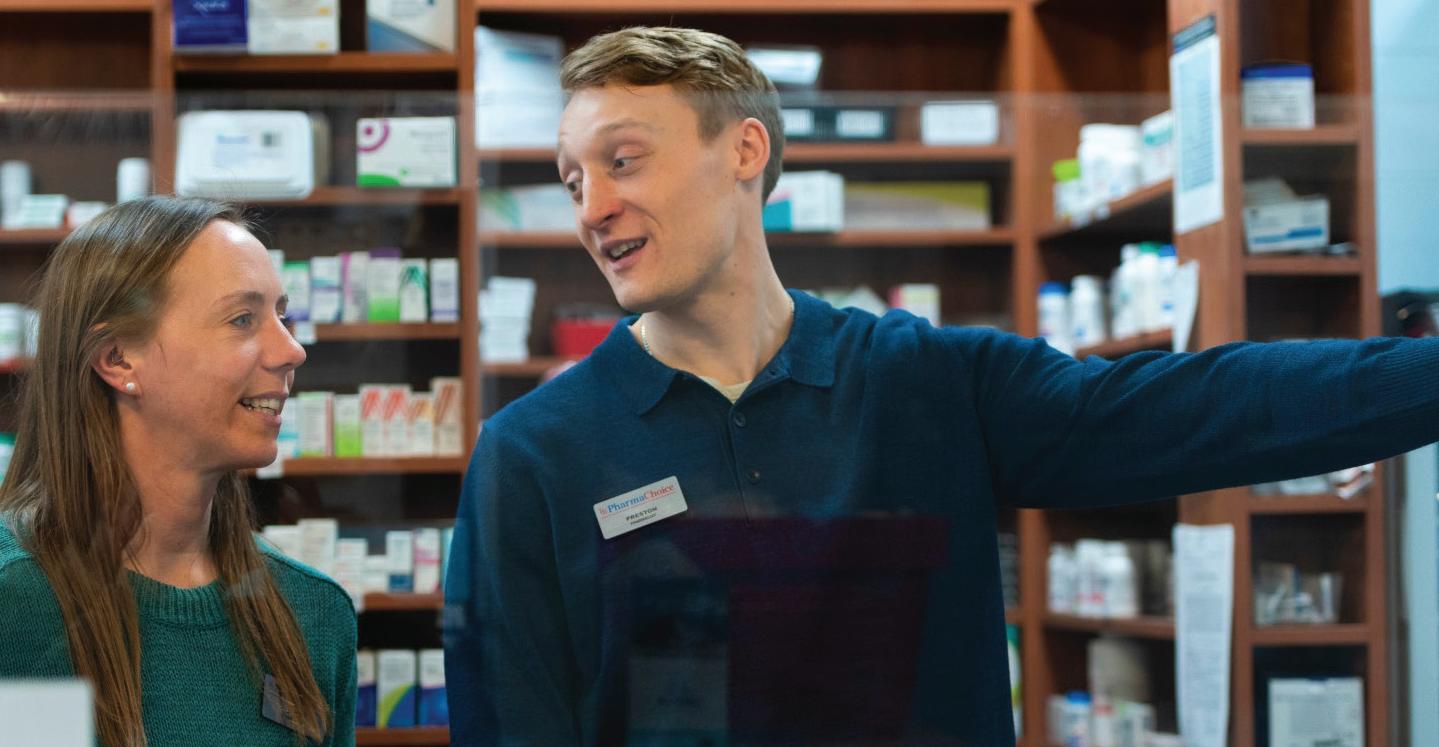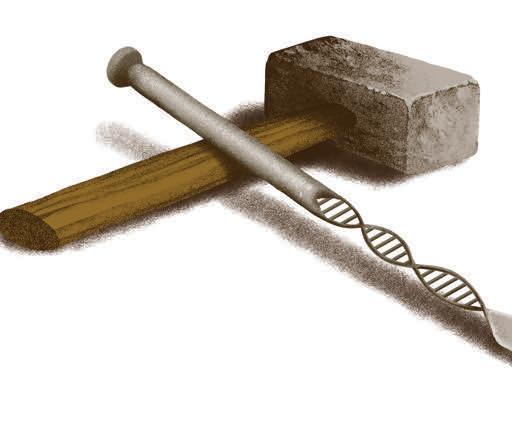
2 minute read
GenerationsGenerosity of
alumni Dwayne Samycia and Salwa Tarrabain-Samycia are supporting today’s pharmacy students as they prepare to enter an evolving profession
By Anna Schmidt
Advertisement
In the spring of 1952, Myros Samycia, ’51 BSc(Pharm), purchased a pharmacy in the heart of Edmonton’s McDougall neighbourhood, launching a legacy. Today the Samycia family has 11 pharmacists in three generations — including Myros’ son Dwayne Samycia, ’76 BSc, ’79 BSc(Pharm) and Dwayne’s wife, Salwa TarrabainSamycia, ’78 BSc(Pharm).

In 2014, they established the Dwayne Samycia and Salwa Tarrabain Pharmacy Fund, supporting projects and students in financial need. ey contribute to the Myros Samycia Family Award Fund. Created by Dwayne’s parents, it provides a scholarship to students based on academic standing and contributions to student life.
Emma Luger, a student in the second year of the Doctor of Pharmacy program, received the scholarship. We spoke with Dwayne, Salwa and Emma about the impacts of this generational generosity.
Why do you support U of A students?
SALWA: We were both fortunate to live at home during university. Many students came from afar to study at the University of Alberta and didn’t have the comforts, or supports, of home. We are so grateful for that.
DWAYNE: We want to give back to those in situations where a li le assistance goes a long way. We want to lighten students’ load.
What does the Samycia Family Award mean to you?
LUGER: It makes a huge di erence. e student financial burden, especially when you move to a new city, is well known. Having a li le bit of that burden taken o of me — especially when my mind is on schoolwork and learning — allows me to focus and not worry about finances.
It also shows recognition. It’s a nice way to be rewarded for your dedication to the program — especially when it comes from alumni who have been where I am right now. ey’re proud of the profession and excited for the future generation. at’s motivating.
What drew you to pharmacy?
LUGER: I grew up in Redwater, Alta. Being in a small town, there was one local pharmacy. I was always interested in what was going on there. I remember my mom going in and asking questions when we couldn’t get in to see the doctor. ey always seemed helpful and knowledgeable. And I had an interest in biology and chemistry, so pharmacy was the perfect fit.
What value do pharmacists bring to the health-care system today?
SALWA: Pharmacy has changed a lot over the years. Pharmacists have vast knowledge and they’re becoming more involved in patient health care. It’s that whole team approach. e pandemic has taxed the system in more ways than we thought possible. Pharmacists can help with that gap.
DWAYNE: With the increased clinical approach, education has changed significantly. My dad's education was a three-year degree that evolved into the four-year program and now the PharmD program. I have no trouble saying that the quality of education through the years has improved. ey’re stronger students with greater knowledge and confidence in their abilities. Pharmacy has come more to the forefront. We can use our backgrounds, experiences and knowledge to alleviate pressures and costs to the system. rough time, we’re showing our value. We support students so they get the education to meet the demands of changing health care. Today, there’s so many opportunities.
SALWA: Whatever path they choose is theirs, but if we can help make that decision just a tiny bit easier or walk along beside them — that’s all we want. ere are many avenues they could follow. e whole world is out there for them.
What’s next for you?
LUGER: I’m just excited to see where the career takes me. One of the reasons I went into pharmacy was because there’s so many options once you graduate. But I have experience in the community pharmacy se ing, and I really enjoy it. I like the relationships you build with patients. It would be ideal to have my own pharmacy one day and be able to spend the time with patients that I know they deserve. =MP








